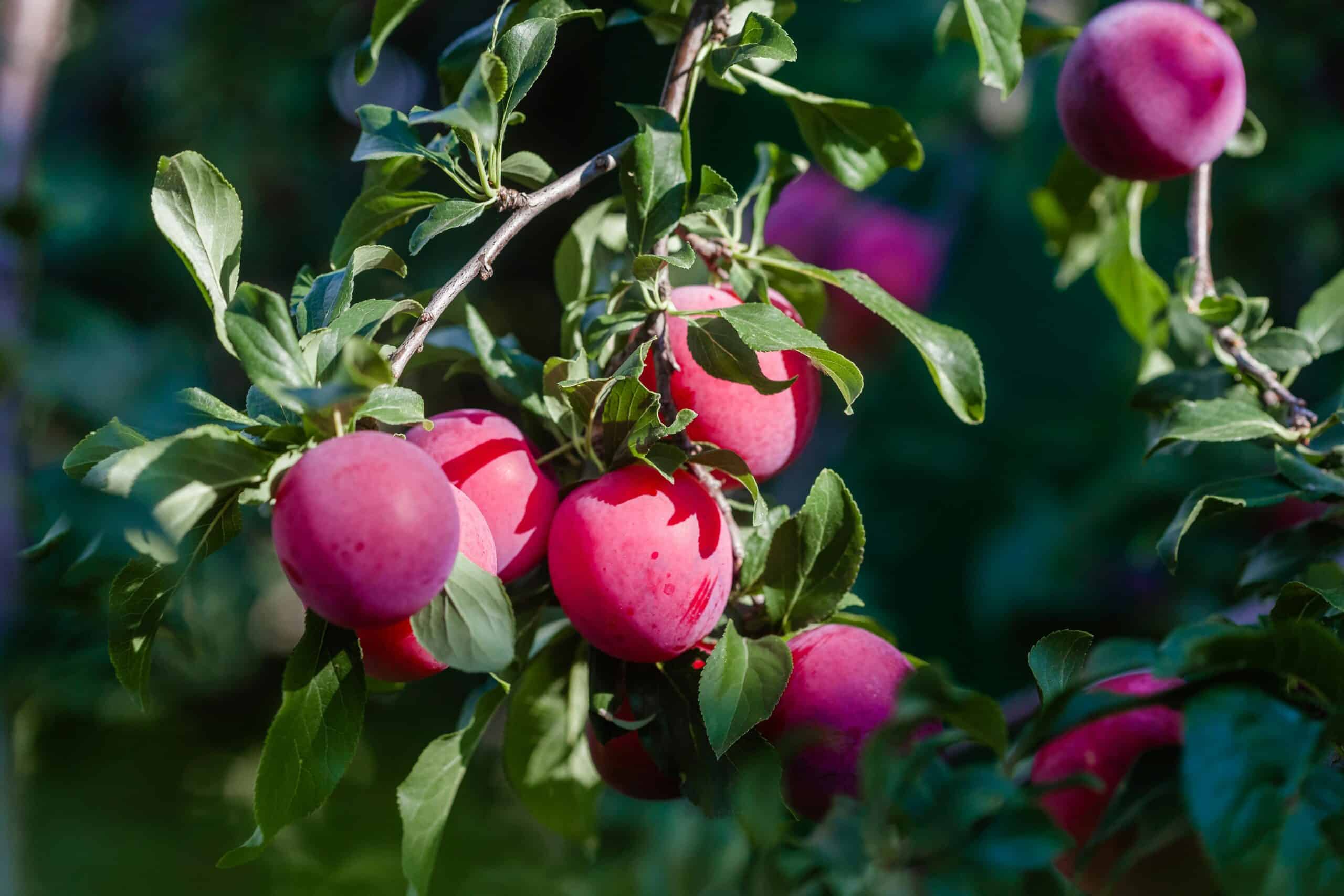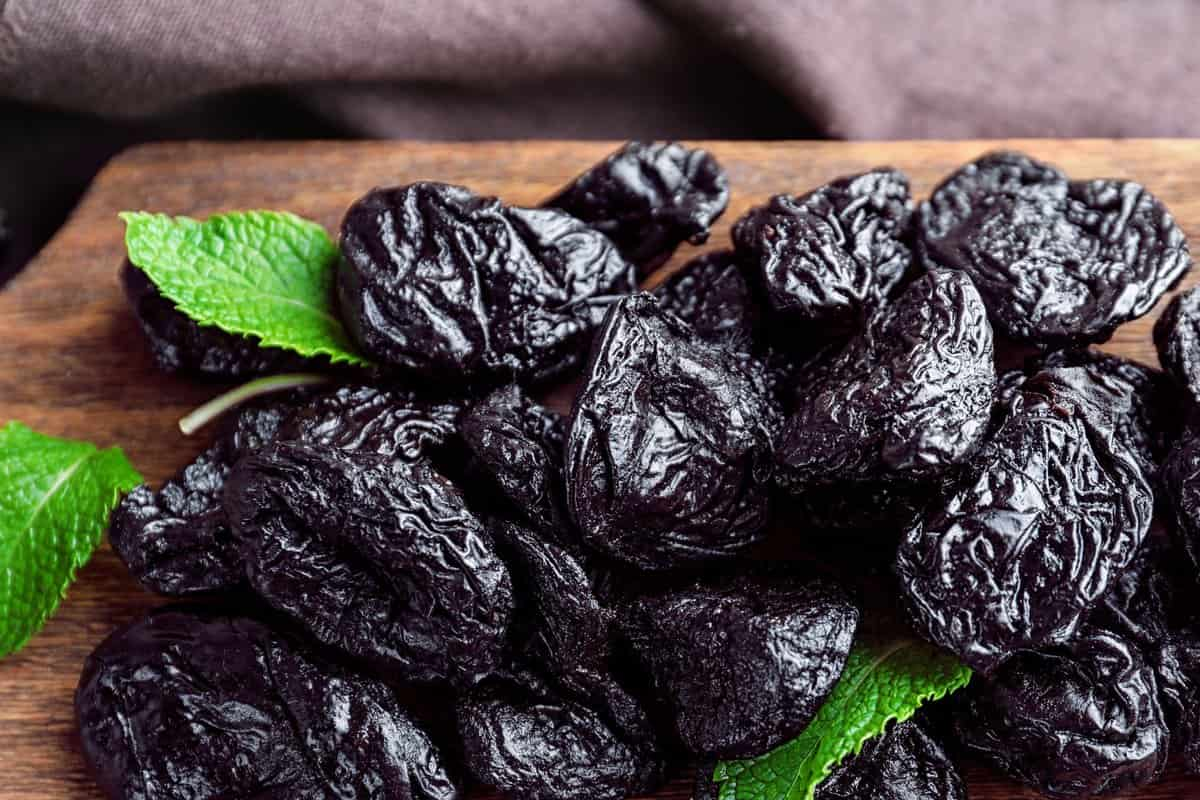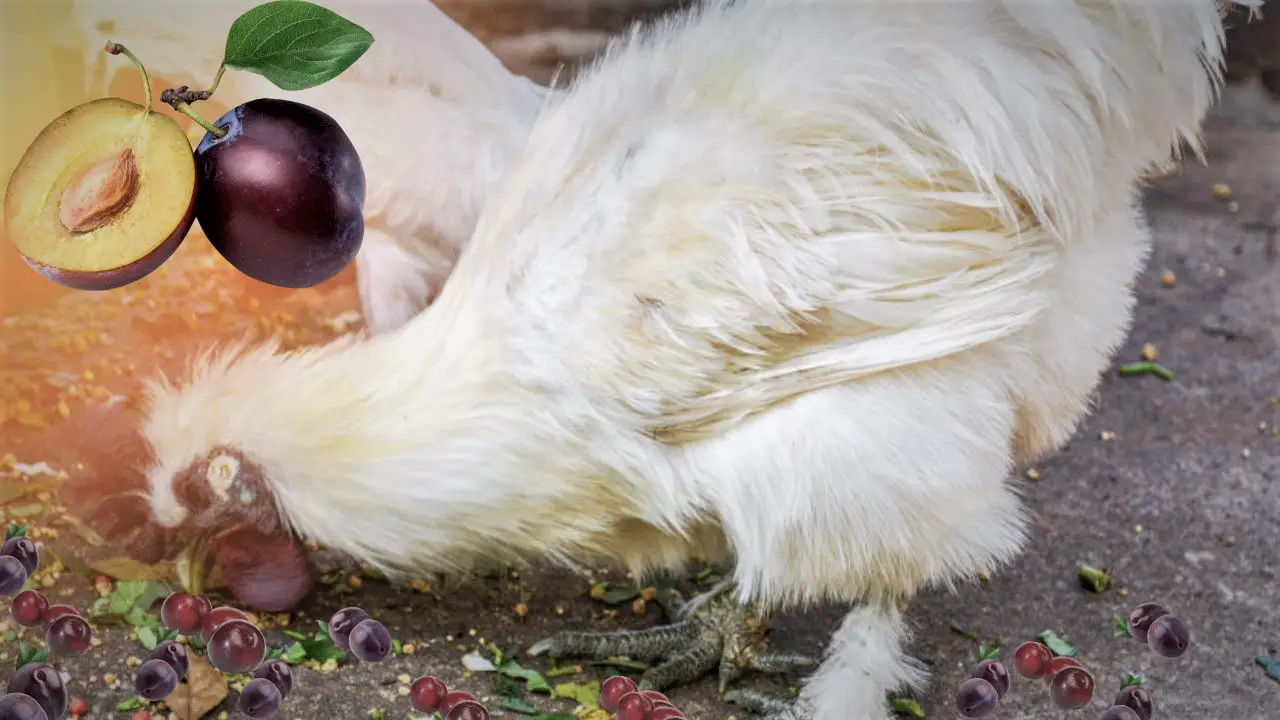One afternoon, I was gathering some ripe plums from a plum tree in my backyard when I saw my chickens eagerly pecking at the fruits that had fallen to the ground. They seemed to love the sweet, juicy flesh, and it made me happy to see them so active.
But then I realized something: I’d never checked if plums were safe for chickens to eat. Wondering if I’d made a mistake, I started to question whether the pits or seeds might be bad for them.
After some research, I discovered that plums can be a delicious and nutritious treat for chickens, but there are a few important things to know. Here’s what I learned about feeding plums to your flock.
Can Chickens Eat Plums?
The short answer is yes, chickens can eat plums, and they’re a healthy snack that can nourish your pets. Plums are part of the Prunus domestica family, which includes apricots and other stone fruits.
They come in big and small sizes and colors like red, purple, green, orange, and yellow. The flesh and skin are safe and packed with nutrients, making them an irresistible treat for omnivorous chickens who love foraging for fruits and insects.
But there’s a catch: the pits are poisonous and must be removed before feeding.
But why is the pit a problem?
The pit of a plum, also called a stone or seed, contains a substance called amygdalin. When consumed, amygdalin breaks down into hydrogen cyanide, a poison that’s harmful to humans and animals, including chickens.
Even trace amounts of cyanide can cause digestive problems, and large amounts could lead to serious health issues or even death. While chickens might not eat the rock-hard pits, especially if they’re thumb-size or larger, they could peck at them and consume small bits.
To be safe, always remove the pits and discard them properly, like in a compost bin, so your flock won’t try to raid them.
I once saw a chicken in my coop pecking at a plum that still had its pit. I quickly realized I needed to check the fruits I was throwing in. Since then, I make sure to cut every plum in half and toss the pit away. It’s a good habit to get into, and it keeps my chickens fine and happy.

Are Dried Plums Safe for Chickens?
Yes, dried plums are safe for chickens as long as they are fed in moderation. Compared to fresh plums, dried plums contain more nutrients and sugar.
Fresh plums contain only 16 grams of sugar, while dried plums contain 66 grams of sugar. Just look at the difference. Dried plums have pits, so there is another risk of digestive problems. So, make sure that first you remove the pits from the dried plums.
You can mix the dried plums in their commercial feed so that they will get some nutrients from their commercial feed and some nutrients from dried plums. However, dried plums should be fed in moderation as they contain high nutrients and high sugar content.

Health Benefits of Plums for Chickens
Plums are more than just a tasty refreshment; they’re loaded with essential nutrients that provide health benefits for your chickens. Here’s why they’re a great addition to a balanced diet.
Plums are rich in antioxidants, like polyphenols, which combat free radicals that can harm cells in the body. This helps keep your chickens safe from diseases and supports their general health. Antioxidants also boost the immune system, making chickens less prone to sickness. If a bird gets ill, antioxidants can help it recover faster.
Plums contain a variety of vitamins and minerals that meet the nutritional needs of chickens:
-
Vitamin C: Strengthens the immune system and promotes a healthier heart. It can also reduce inflammation and prevent coccidiosis, a parasitic condition that affects the intestinal tract.
-
Vitamin A: Necessary for the proper functioning of mucus-producing glands in the nose, esophagus, and inner eyelid. It keeps chickens healthy and active.
-
Vitamin K: Helps with the coagulation of blood. A deficiency can make it difficult for chickens to stop bleeding when injured.
-
Potassium: Aids in egg production and reduces heat stress during hot weather, keeping hens comfortable.
-
Calcium: Chickens rely on calcium to lay eggs. A lack can cause them to stop laying.
-
Folate: Supports normal feather and skeletal growth and prevents anemia.
The fibers in plums are rich and don’t dissolve in water, which helps promote regular bowel movements and prevent constipation. This is especially important for chickens during molting, when their plumage might deteriorate, and they need a healthy system to stay strong.
Sorbitol, a compound in plums, has been shown in studies to lower cholesterol levels, which can be helpful for broiler hens bred for meat production to avoid gaining too much weight.
I’ve noticed that since I started feeding my chickens plums, they seem to have fewer digestive issues. They move quickly around the enclosure, and their feathers look shinier, which I think is a bonus of the nutrients in this fruit.
How Much and How Often to Feed Plums
Chickens should have a diet that’s 90% quality, formulated feed to meet their nutritional needs. Treats like plums should make up ten percent or less of their diet.
I find that feeding plums once or twice a week is enough to keep my chickens happy without overloading them with sugar. A generous serving is about half a plum per adult chicken, sliced into tiny pieces for baby chicks to avoid choking.
If you overfeed plums, your chickens might lose their plumage, begin pecking each other, or deteriorate in health. Too much sugar can also give them diarrhea, which isn’t fun for anyone.
I learned this the hard way when I put too many plums in the coop one time, and my hens got a bit greedy. Now, I ensure the right proportion of treats to keep their system and bone function normal.
How to Prepare Plums for Your Chickens
Preparing plums for your chickens is easy and convenient. Here’s how I do it:
-
Choose ripe plums that are firm but not too hard. You can use plums harvested from your orchard or purchased at markets or grocery stores.
-
Thoroughly wash the plums to remove any dirt or pollutants that might be on the skin.
-
Cut the plum in half and extract the pit. The pit is inedible and should be thrown away to avoid any toxicity.
-
Chop the flesh into smaller cubes or pieces. This makes it easy for chickens to eat and prevents choking, especially for baby chicks.
-
Place the pieces in a large mixing bowl or on a tray and combine with other fruits like strawberries, blueberries, or apples for a complete tasting variety.
I like to mix plums with other fruits because it gives my chickens a different taste each time. They run to the feast and enjoy every piece, which is so rewarding to watch.
If you have free-range chickens, be careful about plums lying around under a treeline. They might eat dropped fruits with pits, which could give them the runs or worse.
In the summer, I sometimes freeze plums to provide a refreshing treat that keeps my chickens hydrated and refreshed. Just slice the plums, remove the pits, and pop them in the freezer. Once they’re frozen, throw them into the coop, and your chickens will love the cool texture. It’s a great way to help them beat the heat.
Prunes, which are dried plums, can also be fed to chickens, but they should be given sparingly. Prunes have four times more sugar than fresh plums, making them susceptible to toxicity if eaten in large quantities. I incorporate prunes into my chickens’ feeds maybe once a month as a special treat, and they seem to enjoy the concentrated flavor.
Conclusion
In conclusion, chickens can eat plums as a healthy snack if you remove the pits and feed them in moderation. The flesh and skin are rich in antioxidants, vitamins, minerals, and fibers that support a strong immune system, healthy digestion, and overall health.
Whether you serve fresh, frozen, or dried plums, your chickens will love this tasty treat. Just ensure you wash, cut, and mix them properly, and avoid feeding large amounts to prevent health problems.
So, next time you’re in your backyard and see a plum fall from your tree, don’t worry, grab it, prepare it right, and give your chickens a delicious feast they’ll enjoy!
FAQs
Are plums okay for chickens to eat?
Chickens can safely eat plums, but you must remove the pits first. The pits contain cyanide, a toxic substance that can harm chickens.
Can birds eat plums?
Many birds, such as wild birds and pet birds like parrots, can eat plums. For pet birds, it’s important to remove the pits, which contain cyanide. Wild birds often peck at plums on trees, enjoying them as part of their natural diet.
Are dried or frozen plums okay for chickens?
Dried plums, or prunes, are safe for chickens in small amounts because they have more sugar than fresh plums. Frozen plums are also fine if you remove the pits and thaw or cut them into small pieces to prevent choking.

Hello! I’m Ibrahim, the owner and writer of this blog. I run a chicken farm with 160 chickens, and I’ve gained a lot of knowledge about raising and caring for them. Now, I want to share my insights and experiences with you to help you in chicken keeping.


2 thoughts on “Can Chickens Eat Plums? Honest Discussion”